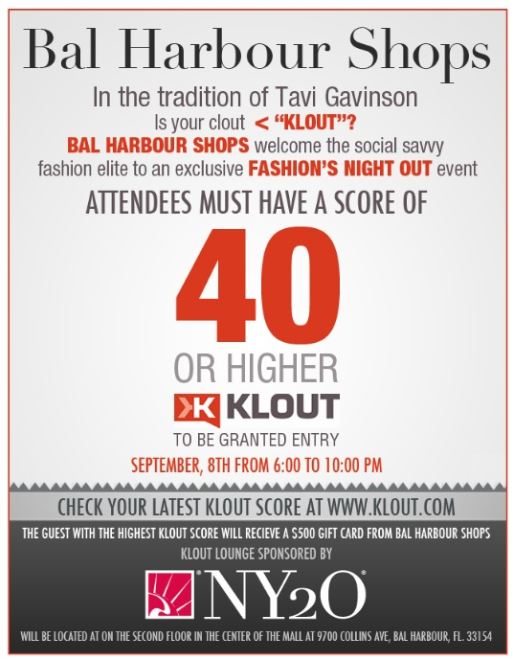If you hate Klout … and you probably do … try to take a deep breath and read ahead with an open mind.
Nothing seems to get rational people in a frenzy as much as Klout and its attempt to measure “influence.” I have immersed myself in the world of online power and influence over the past six months and feel like at this point I have probably studied this topic more than any person on earth! And, unlike every other blogger on the planet it seems, I’ve come to the conclusion that this is a very important development. In fact, a historically important development.
Before I get into why, let’s knock a few obvious facts out of the way:
- Klout cannot measure every type of influence. Never has. Never will.
- Klout can be “gamed.” Is there anything on the Internet that can’t be?
- It is uncomfortable being publicly rated and compared to other people.
- Yes, it is stupid that Klout thinks you’re influential about lamps or sheep. It is still in the early stages of development.
Now, for a different perspective.
Before the Internet, you had to actually accomplish something to be a celebrity. Today, anybody can drum up some attention for themselves by creating content that virally moves through the social web.
Even me.
In my small world here in Knoxville, Tennessee, USA, I might influence my family, maybe some business colleagues, and that’s about it. But give me a blog and a Twitter account and I have people from all over the world telling me that I have impacted them. That is a situation that could only have happened at this precise moment in human history! It is a possibility enabled by technology — widespread access to low-cost, high-speed Internet service and free/easy social publishing tools.
Just a few years ago, there is no way you would have heard of Mark Schaefer. Now I’ve been quoted in the New York Times and featured on MSNBC for just one reason: I am able to create, and move, my content.
So even a nobody like me can become an Influencer. And that’s pretty darn cool. In fact, we’re in an era where you don’t have to be a sports star or a politician to have influence. All you have to do is write about your favorite topic and you can have your chance to be a little bit famous.
Content is power.
The ability to create and move content is the absolute key to online influence. So think about this — To the extent that you could actually measure that, wouldn’t you also be creating an indicator of relative influence?
That’s what Klout is trying to do. They are finding the people who are experts at creating, aggregating, and sharing content that moves online. Nothing more.
That may seem rather simple but it’s actually complex, and from an academic and business point of view, a significant development.
“Influence” has been one of the most studied aspects of politics, marketing, sociology, and psychology and yet it has never really been measured in a statistically valid way. Until now. People creating content is an action. Having a link clicked, or a message re-tweeted, is an effect. Finally, there is something to measure in this field. In fact there are billions of actions and effects to measure and compare every day!
So an important distinction is that if you’re not on the social web, you’re obviously not being measured. To argue that I should not have a higher Klout score than Oprah is missing the point. Of course I should have a higher score. Oprah doesn’t tweet, so she can’t be measured. That does not mean that GLOBALLY I am more powerful than Oprah. It means that in my little sliver of the online world, among my audience, and on my topics, I can be influential. And, so can you.
A word of mouth revolution
For decades companies have spent big, big money to try to identify and nurture word-of-mouth influencers. This is an expensive and inexact science. Can you see how amazing it is to now be able to quickly, easily, and cheaply find and connect with the people who are influential about movies in Memphis? Or who generate buzz about beer in Berlin?
You can imagine that companies would be all over this. Some of the biggest and brightest marketers and brands like Disney, Audi, Starbucks, and Nike have incorporated Klout influencers into their traditional marketing efforts. And it is working. According to Klout, each influencer in one of their Perk programs generates an average of 30 pieces of content and millions of possible impressions. The cost per thousand impressions is incredibly low compared to other forms of advertising and it is ORGANIC since it is being generated by people who already love the brands.
Now, you can go ahead and keep writing blog posts all day long about how stupid Klout is and I’ll simply suggest that you are putting emotion ahead of facts and doing a disservice to your customers. Of course all of the negatives at the top of the article are true and valid. But don’t miss the forest for the trees. This trend is happening with you or without you, so calm yourself and start to study this as an important online marketing weapon.
Social scoring is improving. It is a historically significant development. Big brands care. And so should you. Right?



